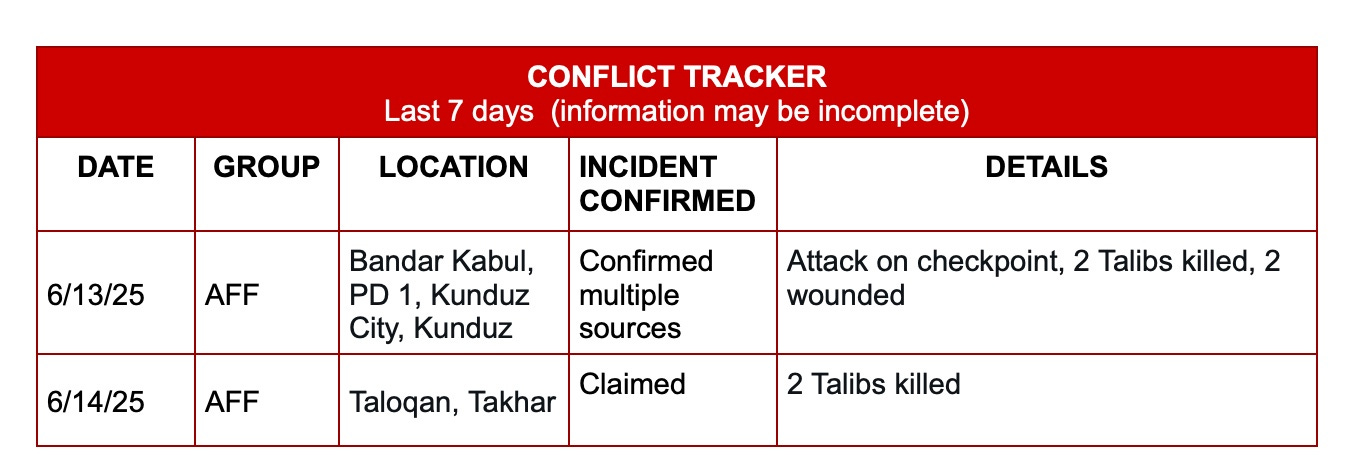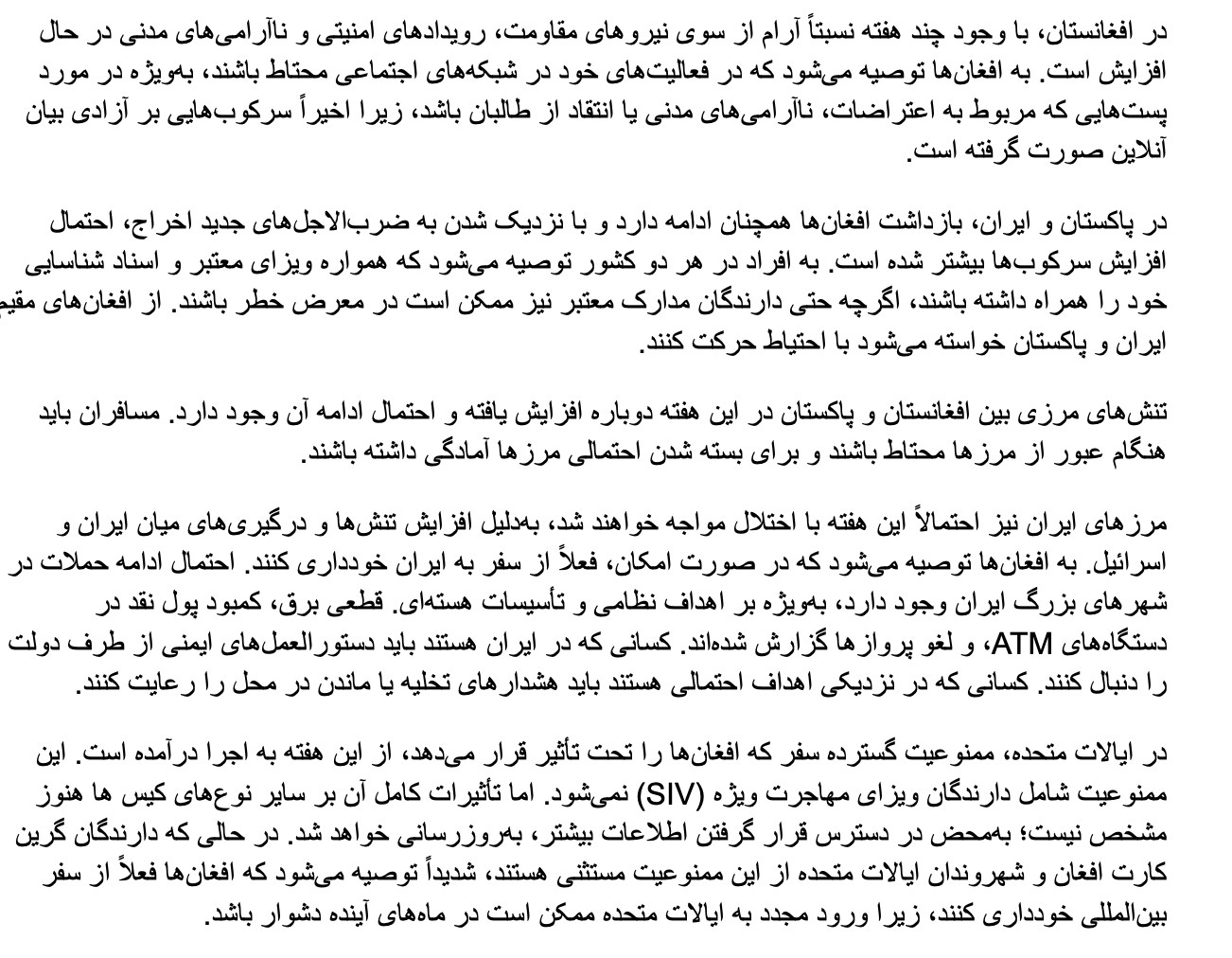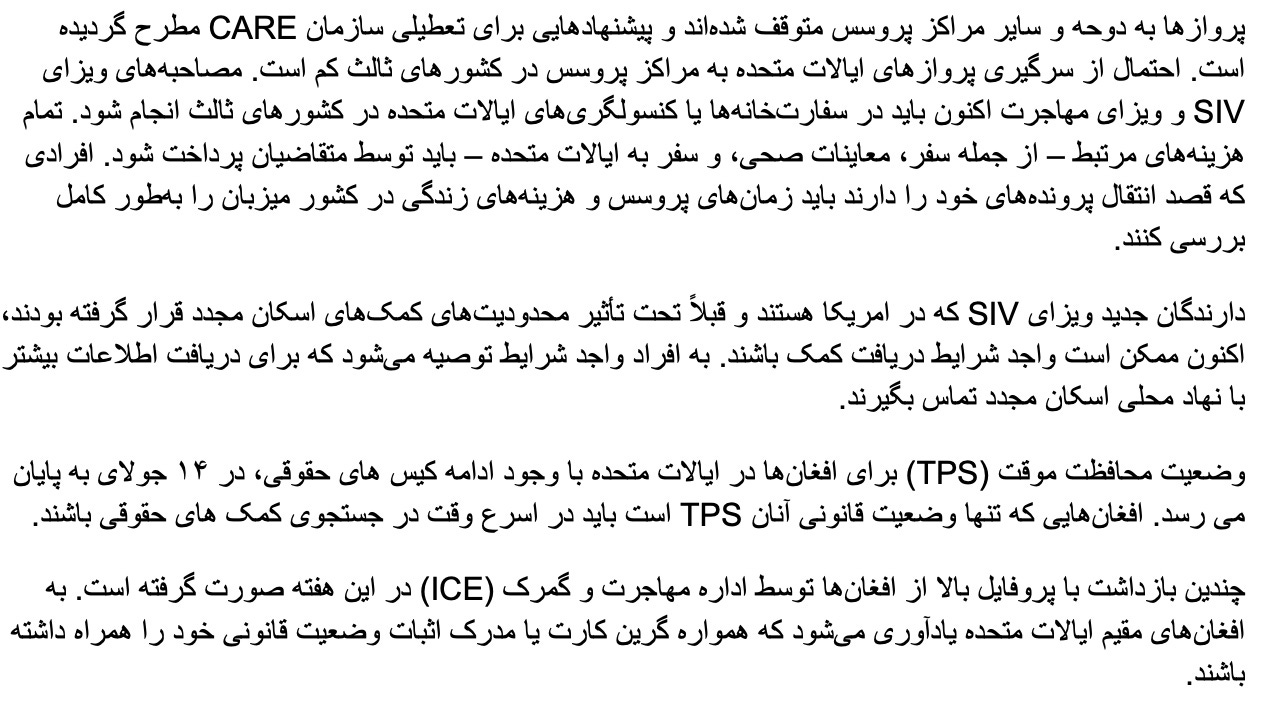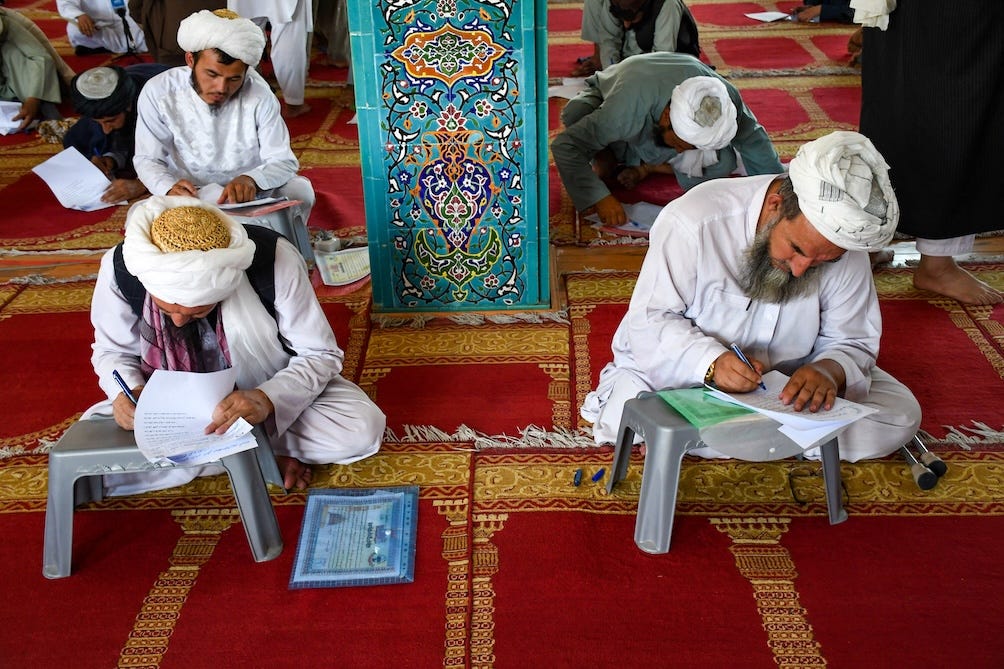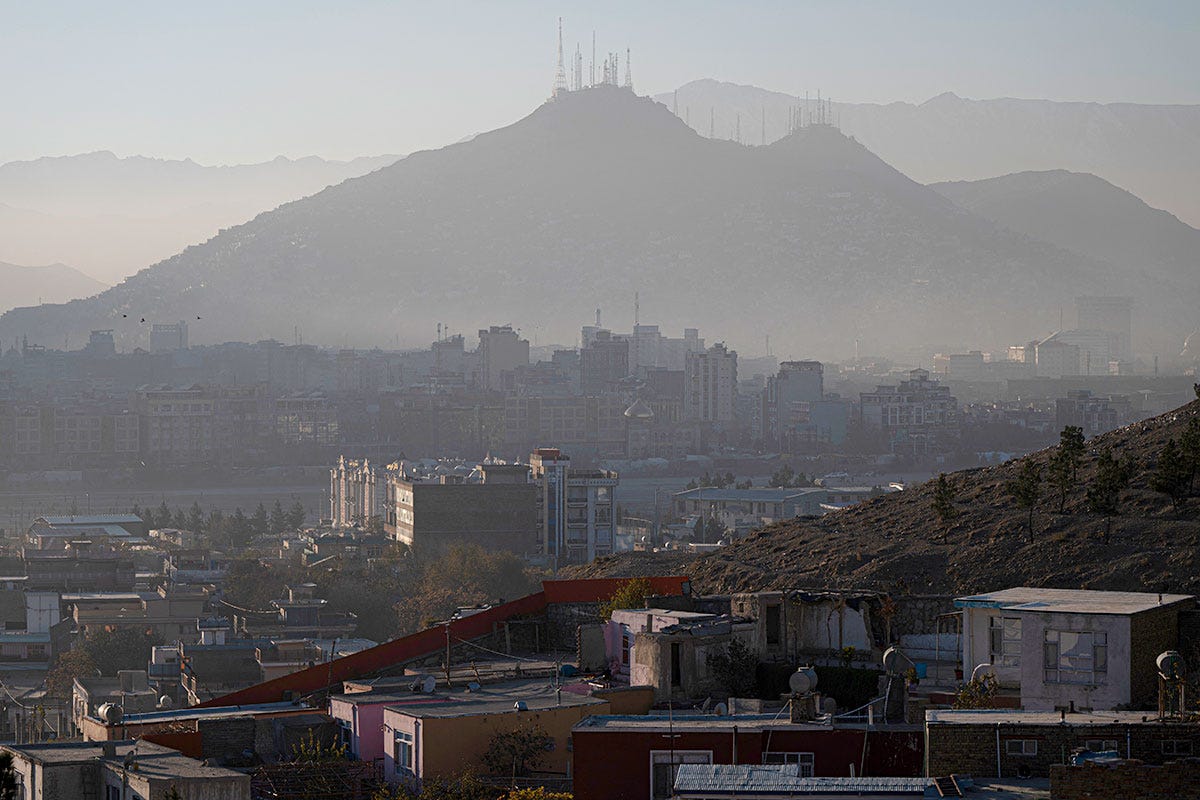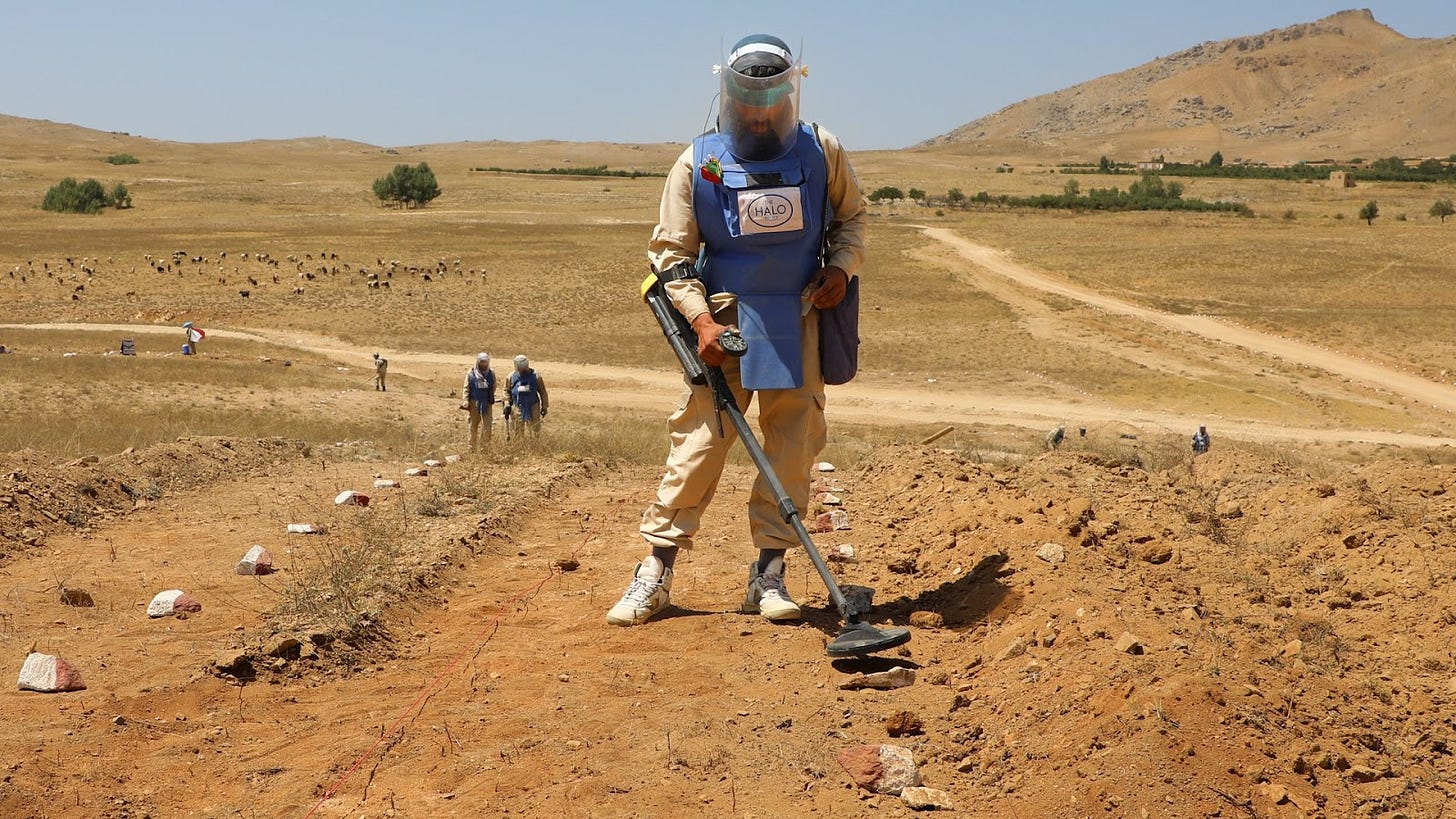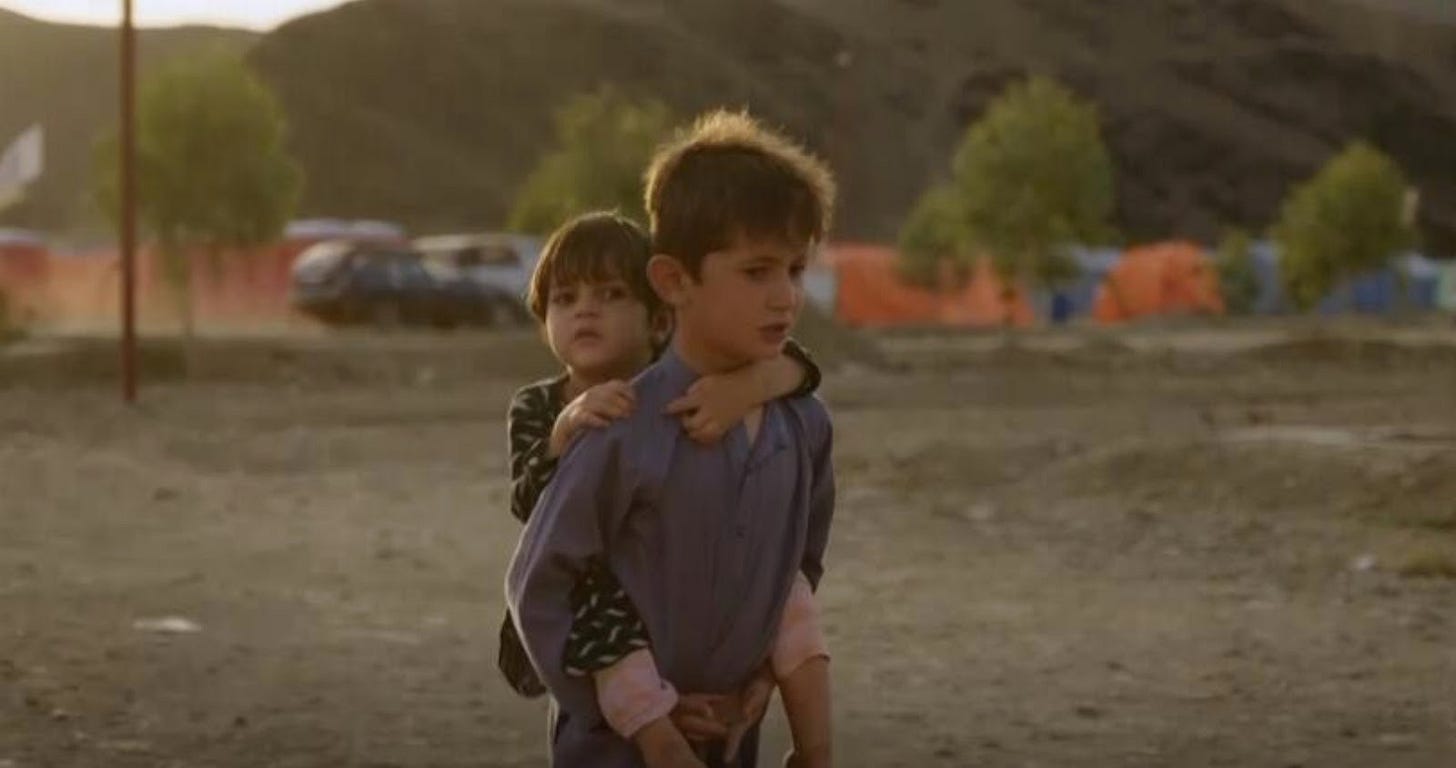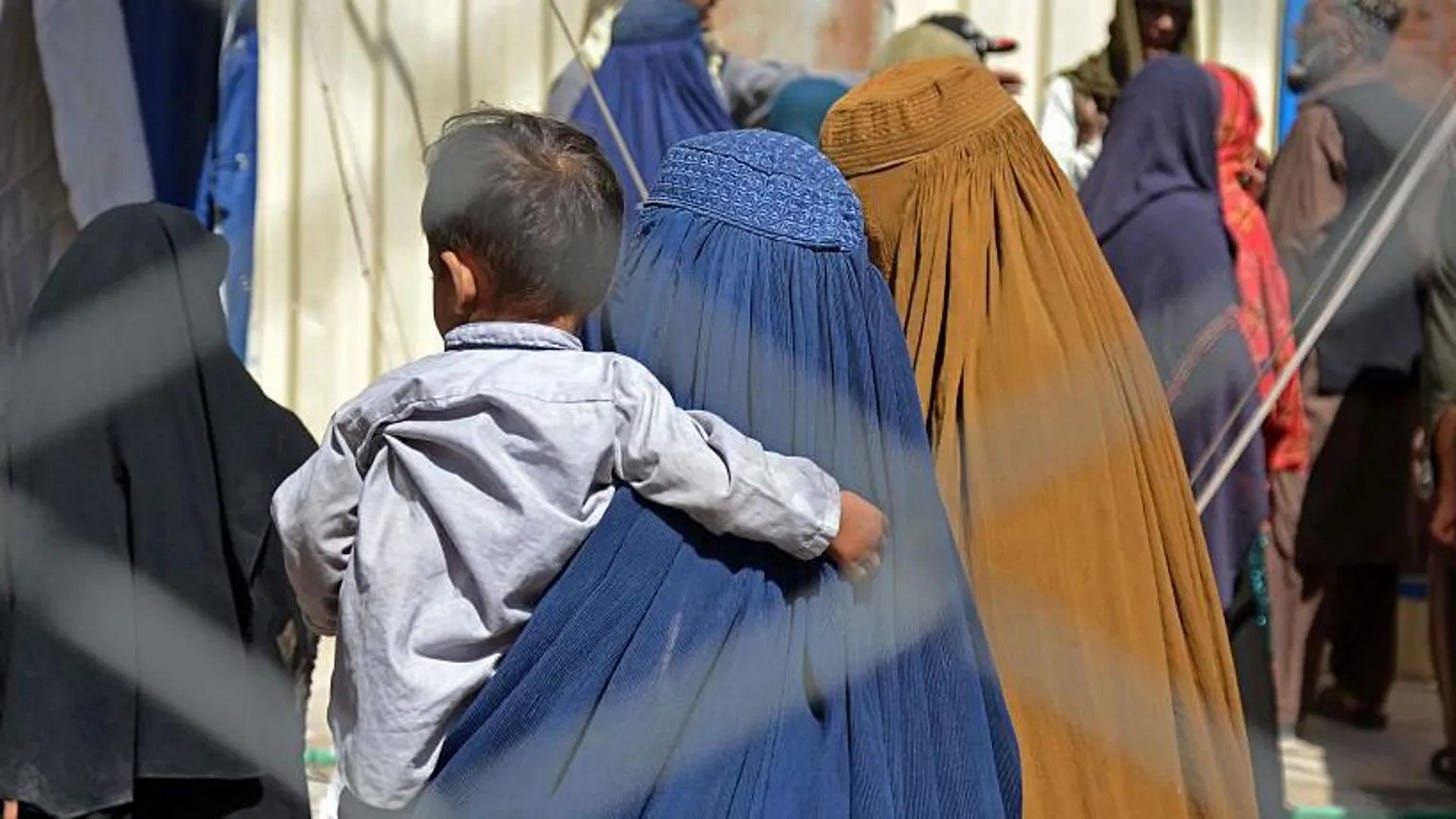The Week of June 9 -15
Security and Conflict
Taliban Security Clash With Alleged ISKP – On Monday night, intense clashes broke out in Kabul’s Police District 15, near the Qasaba area close to Kabul International Airport. Witnesses reported hearing at least three explosions between 8:19 and 8:32 PM local time, followed by heavy gunfire. Taliban officials later confirmed the operation targeted an ISKP hideout. The raid allegedly uncovered a facility used to produce suicide vests and explosives. Two ISKP members were killed, and weapons, bomb-making materials, and large sums of cash were seized. Footage of the recovered materials has raised new concerns about ISKP’s continued presence near critical infrastructure and high-security zones, including areas used by Taliban leadership. Some sources have questioned whether the location was in fact an ISKP house.
Cross Border Attacks in Kunar – On Friday, tensions flared along the Afghanistan–Pakistan border following cross-border clashes in Kunar province’s Dangam and Marawara districts. Afghan security officials reported that an Afghan border soldier was wounded in the exchange, while a Taliban source confirmed that one of their fighters was also injured. On the same day, across the border in Pakistan’s Ursoon Valley in Khyber Pakhtunkhwa, a rocket reportedly fired from the Afghan side struck a school, injuring three schoolchildren.
Explosions in Kandahar – On Wednesday, two strong explosions were reported late in the evening in Kandahar, originating from an ammunition depot near Aino Mina Corona Hospital in District 11. The facility, believed to date back to the former Afghan Republic era, was reportedly under the supervision of the local security command. The blasts caused shockwaves across the city, but no casualties have been confirmed. While some sources linked the incident to unexploded ordnance, the exact cause and full details remain unverified.
Protests in Faryab – On Tuesday, in Faryab’s Dawlatabad district, Taliban forces arrested dozens following protests over the detention of youths involved in an Eid altercation. Protesters, some chanting “Long live Dostum,” stormed the Taliban police command building. The Taliban responded with mass arrests and launched house-to-house searches, prompting residents to remain indoors. Conflicting reports estimate between 35 and 100 people were detained. The demonstrations were reportedly driven by concerns over alleged ethnic exclusion and land distribution practices.
Clash with Tourists in Nuristan – On Wednesday, a clash erupted in Nuristan between local Taliban and armed tourists from Kandahar, according to local sources. A video shows physical fighting that escalated after verbal tensions. Both sides reportedly opened fire after the Kandahar residents—visiting as tourists—were confronted for carrying weapons.
Human Rights and Civil Liberties
Woman Imprisoned By Taliban Killed By Husband – In Nangarhar’s Spin Ghar district, a woman recently freed from Taliban prison was hanged and killed by her husband. She had served a one-year sentence for alleged “illicit relations.” Released just days before Eid, she was murdered on June 8 in her bedroom. The victim was a mother of three. Taliban authorities have not commented on the case.
Taliban Arrests Several People Over Eid – The Taliban’s Ministry for the Promotion of Virtue arrested multiple individuals in Panjshir, Nuristan, Kunar, Nangarhar, and Paktia for aerial gunfire and disrupting public order during Eid celebrations. Officials claim the detainees used the holiday as a pretext for harassment and un-Islamic acts. Armed youths in Nuristan were disarmed and are currently under investigation.
Internal Politics
Mullah Hibatullah’s Eid Message – Mullah Hibatullah led Eid prayers in Kandahar under heavy security, including a total mobile network shutdown and overnight drone surveillance. In his speech—later released by Taliban media—he praised the regime’s achievements, such as caring for drug addicts and enforcing a poppy cultivation ban on religious grounds. He urged public obedience to Sharia law and dismissed democracy as a failed Western model. Hibatullah warned Afghans against believing foreign media “lies” aimed at sowing division, and reiterated his commitment to strict Sharia rule. He condemned U.S. support for Israel, likening the Palestinian struggle to the Taliban’s own resistance, and prayed for similar victories. He also defended Taliban restrictions on women—including bans on education, employment, and access to public spaces—framing them as moral protections and rejecting international criticism as misguided.
Officials Banned From Use of Cellphones With Cameras – The Taliban’s leader has issued a directive banning the use of mobile phones with cameras by group members. The order was delivered during Eid al-Adha meetings with provincial and ministerial officials, emphasizing strict adherence. Taliban commanders and local authorities were instructed to fully comply. The ban was reaffirmed in official audio communications circulated within the group.
International Developments
Richard Bennett’s Speech On Human RIghts – In a new report, UN Special Rapporteur Richard Bennett outlined a profound human rights crisis in Afghanistan under Taliban rule, describing it as "gender apartheid." Since returning to power in 2021, the Taliban have systematically dismantled legal protections for women and girls—banning them from education, employment, healthcare, and legal recourse. Female judges, lawyers, and prosecutors have been removed, and institutions like the Ministry of Women’s Affairs and EVAW (Elimination of Violence Against Women) courts abolished. The justice system, now dominated by untrained male judges enforcing ideological edicts, lacks due process and impartiality. Survivors of abuse face stigma, threats, and institutional bias, while informal mechanisms often reinforce patriarchal norms. The report urges an “all-tools” international response, including support for Afghan civil society, recognition of gender apartheid as a crime, and accountability through mechanisms such as the ICJ. Over 25 countries have expressed support for legal action under CEDAW, reflecting global concern over Taliban abuses. The full report can be accessed Here
US CENTCOM Statement on IS in Af/Pak – On Wednesday, CENTCOM Commander General Michael Kurilla stated that the Taliban, in cooperation with Pakistan, have killed dozens of ISIS-Khorasan (ISIS-K) members, forcing the group to retreat toward border areas. Kurilla also revealed that five senior ISIS operatives—including a suspect in the Kabul airport bombing—were arrested by Pakistani forces with U.S. intelligence assistance. While praising Pakistan as a key counterterrorism partner, he warned that ISIS-K remains an active and persistent threat.
Russian Statement on Increased IS Threat – At a CIS counterterrorism meeting in Moscow, FSB Director Alexander Bortnikov warned of increased ISIS activity in Afghanistan, particularly by ISKP, which he said threatens regional stability. He claimed that international terrorist leadership is increasingly relying on fighters in Afghanistan and Syria, including former prisoners from Russia, Central Asia, and the Caucasus. Bortnikov blamed Western policies in the Middle East for fueling extremism. The Taliban rejected his claims as baseless, asserting that ISKP has been neutralized under their control.
Massoud Visits France – On Wednesday, Ahmad Massoud, leader of the National Resistance Front of Afghanistan, met with several French officials during a visit to Paris. Éric Ciotti, head of France’s Republican Party, praised the NRF’s struggle against the Taliban and expressed continued support. Massoud delivered a speech Thursday afternoon at the Bernardins Research Center, focusing on freedom, political dignity, and the fight against extremism.
Regional Developments
Herat-Iran Border Closed – On Friday night, Iranian border guards closed the Islam Qala–Dogharoon crossing to both passenger and commercial traffic. Iranian officials have not commented on the closure and Taliban officials have denied the claims, though individuals on the ground have reported closures and delays.
Significant Trade Decreases with Pakistan Reported – Annual trade between Afghanistan and Pakistan has sharply declined from $2.5 billion to approximately $1 billion, driven by recurring border closures and uncoordinated trade policies. Officials warn that the continued decline could further damage bilateral economic relations. Pakistan exports goods such as cement and medicine to Afghanistan, while Afghan exports are primarily agricultural. Political instability and cross-border tensions have repeatedly disrupted trade, resulting in financial losses, temporary unemployment, and threats to broader regional economic cooperation.
Taliban Delegation Travels to Tashkent – On Monday, Taliban Acting Industry Minister Nuruddin Azizi led a delegation to Uzbekistan for the Fourth Tashkent International Investment Conference. The visit aimed to strengthen trade ties and follow up on prior commitments. The Taliban are seeking Uzbek investment in northern Afghanistan’s oil and gas sector. Azizi and Uzbekistan's Investment Minister Laziz Kudratov signed a preferential trade and joint action plan agreement intended to lower tariffs, facilitate exports, and expand cooperation in industry, agriculture, and logistics. The deal also includes support for the private sector and improvements in trade transit.
New Taliban Consul General Named for Mashhad – On Tuesday, the Taliban appointed Noor Mohammad Motawakkil as their new consul general in Mashhad, replacing the late Faizanullah Naseri. Legal and diplomatic procedures are underway to formalize Motawakkil’s entry and assumption of consular duties. He previously led the ideological and cultural department within the Taliban’s Ministry of Defense.
Afghan Embassy Ankara Resumes Passport Issuance – The Afghan Embassy in Ankara has resumed issuing passports to Afghan nationals after a four-year suspension. According to the embassy’s announcement, Afghan citizens may now visit the embassy to obtain their passports.
Mohaqiq To Visit Islamabad – Mohammad Mohaqiq, a senior member of the National Resistance Council for the Salvation of Afghanistan, announced that a delegation will soon visit Islamabad to address the worsening situation of Afghan refugees in Pakistan. Emphasizing that the mission is humanitarian rather than political, Mohaqiq said millions of Afghans face the threat of deportation from both Iran and Pakistan. The visit follows a similar trip to Iran in April. Despite criticism, the Council maintains that it serves as a voice for Afghan exiles and advocates for refugee rights across the region.
NEXT WEEK
In Afghanistan, despite a relatively quiet few weeks from resistance forces, security incidents and civil unrest are on the rise. Afghans are advised to exercise caution with their social media activity, especially posts related to protests, civil unrest, or criticism of the Taliban, as recent crackdowns on online expression have occurred.
In Pakistan and Iran, the detention of Afghans continues, and increased crackdowns are likely as new deportation deadlines approach. Individuals in both countries should carry valid visas and identification at all times, though even those with proper documentation may still be at risk. Afghans in Iran and Pakistan are strongly urged to move with caution.
Border tensions between Afghanistan and Pakistan have flared again this week and are expected to persist. Travelers should use caution at border crossings and be prepared for possible closures.
Iranian border crossings are likely to face disruptions this week due to rising tensions and fighting between Iran and Israel. Afghans are advised to avoid travel to Iran at this time if possible. Attacks are likely to continue in major cities in IRan, specifically on military targets and nuclear sites. Power outages, ATM shortages, and flight cancellations have all been reported. Those in Iran should follow official guidance on safety protocols. Those near likely targets should follow evacuation or shelter in place warnings.
In the United States, a broad travel ban affecting Afghans has taken effect this week. The ban does not apply to SIV holders. However, the full implications of the ban for other types of cases remain unclear; further updates will be provided as more information becomes available. While Afghan Green Card holders and U.S. citizens are exempt, it is strongly recommended that Afghans avoid international travel for now, as re-entry into the U.S. could be difficult in the coming months.
Flights to Doha and other processing hubs have been suspended, and there are proposals to shut down CARE. U.S. flights to third-country processing platforms are unlikely to resume. SIV and immigrant visa interviews must now be conducted at U.S. embassies or consulates in third countries. All related costs—including travel, medical exams, and onward travel to the U.S.—must be covered by applicants. Individuals considering transferring their cases should thoroughly research processing times and the cost of living in the host country before proceeding.
Recently arrived SIV holders who were previously affected by blocks to resettlement benefits may now be eligible for assistance. Eligible individuals are encouraged to contact their local resettlement agency for more information.
Temporary Protected Status for Afghans in the U.S. is set to expire on July 14, despite ongoing litigation. Afghans whose only legal status is TPS should seek legal assistance as soon as possible.
There have also been several high-profile arrests of Afghans by ICE this week. Afghans in the U.S. are reminded to always carry their Green Card or proof of legal status.
REGIONAL ROUNDUP
IRAN
Israel/Iran Fighting – In the past week, fighting between Israel and Iran sharply escalated. Israel launched a series of coordinated airstrikes targeting key Iranian military and nuclear infrastructure. Cities hit included Tehran, Isfahan, Natanz, and Mashhad. Among the sites struck were facilities linked to Iran’s nuclear program, military bases, and the Islamic Revolutionary Guard Corps (IRGC) headquarters. At least 78 Iranians were killed, including IRGC commanders and nuclear scientists, with over 320 injured.
In response, Iran launched a wave of missile and drone attacks on Israel, targeting cities such as Tel Aviv, Haifa, and the Galilee. These strikes killed 13–16 civilians and wounded over 360. Significant infrastructure damage was reported on both sides, including to Iran's energy and defense installations.
Air travel has been severely disrupted. Flights were halted at Tehran’s Imam Khomeini International Airport, and Iran’s airspace has seen intermittent closures. Civilians in Tehran and Isfahan have reported evacuations and power outages, with growing concerns about fuel shortages and safety.
The IRGC’s involvement and direct targeting have deepened tensions, with fears of further escalation. Western governments have issued strong travel warnings for both Iran and Israel amid the growing conflict.
800,000 Afghans Face Deportation – On Monday, Tehran’s governor announced that an estimated 800,000 undocumented Afghan migrants currently residing in the city face arrest and deportation. Iran’s Interior Ministry has stated that it expects up to four million Afghans—two million of whom have expired documents—to leave the country by July 6, 2025. A member of parliament reported nearly one million deportations in the past eight months but noted that many Afghans return, legally or otherwise. Authorities have emphasized that undocumented individuals will be detained and returned to Afghanistan if identified.
Deportations Continue – Over 632,000 Afghan refugees have returned from Iran in the first five months of 2025, many without legal procedures, according to UNHCR. Spokesperson Faramarz Barzin reported daily returns of around 5,500 since April, with many returnees citing mistreatment in Iran. The IOM noted over 15,000 families returned in May alone.
Afghan Woman Murdered in Iran – The body of 26-year-old Afghan woman Kubra Rezayi—also known as Shaghayegh—was found mutilated in Tehran’s Pishva district, according to the human rights organization Hengaw. DNA testing confirmed her identity. She had reportedly gone missing 50 days earlier while on her way to work. On Friday, Tehran police announced the arrest and imprisonment of a suspect who confessed to the murder, following an intelligence-led operation. No further details have been released.
Two Afghans Executed in Iran – This week, Iranian authorities executed six prisoners, including two Afghan nationals, in Mashhad and Shiraz. The Afghan inmates—Saleem from Kabul and Ali Maleki from Jawzjan—had been sentenced to death on drug-related charges three years ago and were executed last Saturday at Vakilabad Prison.
PAKISTAN
Pakistan Urges Undocumented Foreigners to Leave – Pakistan’s Interior Ministry has intensified its efforts to expel undocumented foreigners, particularly Afghan nationals, urging them to leave voluntarily. Since October 2023, more than 1.1 million Afghans have been deported, including over 216,000 since April 1. Authorities have begun removing holders of Afghan Citizen Cards, of whom more than 800,000 are registered. The ministry has warned of strict legal action against those who employ or shelter undocumented migrants. Beginning June 30, Pakistan will initiate deportations of Afghans holding Proof of Registration (PoR) cards as part of the second phase of its nationwide deportation campaign
SPOTLIGHT ANALYSIS
Living a Mullah’s Life: The changing role and socio-economic status of Afghanistan’s village clerics
Sharif Akram
In Afghanistan, where Islam has been the predominant religion for many centuries, local religious leaders, known as mullahs, are an influential group with significant say in almost every issue. While their influence is profound, their personal economic status and lifestyle have often been modest. In this first of two reports, AAN’s Sharif Akram looks at the changing status of village mullahs in southeastern Afghanistan from the pre-war era to the present day. He argues that over the past four decades, their lives and socio-economic situation have improved significantly, but asks where they now stand vis-à-vis their communities and the state.
The term ‘mullah’ is widely used in Afghanistan, Pakistan and Iran to refer to religious leaders or prayer leaders within Muslim communities. A mullah is typically someone with a basic knowledge of Islamic teachings who is capable of leading prayers, teaching the fundamentals of religion and addressing common religious issues faced by his congregation. Some interviewees also spoke about ulema (singular – alem), usually understood as Islamic scholars, although they were still referring to clerics with the sort of basic training enjoyed by Afghan mullahs through the ages.
This report examines the personal lives of village mullahs, focusing on the changes in their economic status over time and the factors driving these shifts. It also explores the implications of an improved economic situation for mullahs. This study specifically focuses on the southern and southeastern regions of the country, mainly rural and Pashtun, and with all interviewees being Sunni Muslim. The author notes that the lives of mullahs and their social status could be somewhat different in Afghanistan’s various regions, and that urban mullahs have almost always had a different trajectory, with far more control exercised by the state, including often being paid directly by it. The findings are based on more than 10 in-depth interviews with mullahs from Khost, Paktia, and Ghazni, as well as insights gained from conversations with community leaders and mullahs from other provinces in the south and southeast.
AFGHAN NEWS
A City Without a Middle Class: How Kabul Is Silently Emptying Out
Amin Kawa
Several citizens of Afghanistan state that the middle class in Afghanistan’s cities, particularly Kabul, is on the verge of complete collapse. They note that Kabul, which had become a hub for elites in various fields before the Taliban’s takeover, is no longer a dream destination for intellectuals, engineers, entrepreneurs, artists, and other professionals. These citizens emphasize that Kabul and other major cities have lost their modern urban identity due to the erosion of the middle class, resulting in the transformation into polarized societies. According to them, cities are now divided between the affluent Taliban and the silent, impoverished. At the same time, the middle class has either been marginalized or forced to migrate and leave the country. Meanwhile, some experts warn that without the middle class, Afghanistan’s cities will collapse from within. They believe the middle class is the backbone of the country, and without it, the economy, commerce, and concepts of human rights lose meaning. In their view, stable and sustainable jobs, which form the foundation of the middle class, have either been destroyed or brought under Taliban control.
One in Five Afghans at Risk from Landmines and Explosives, Warns HALO Trust
Kabul Now
At least 6.4 million people in Afghanistan are at risk from landmines and other explosive remnants of war, according to The HALO Trust, an international demining organization.
In its report released Tuesday, the organization warned that Afghanistan remains one of the most landmine-contaminated countries in the world – surpassed only by Ukraine.
REGIONAL NEWS
45 minutes to pack up a lifetime as Pakistan’s foreigner crackdown sends Afghans scrambling
Elena Becatoros
The order was clear and indisputable, the timeline startling. You have 45 minutes to pack up and leave Pakistan forever.
Sher Khan, a 42-year-old Afghan, had returned home from his job in a brick factory. He stared at the plainclothes policeman on the doorstep, his mind reeling. How could he pack up his whole life and leave the country of his birth in under an hour?
INTERNATIONAL NEWS
'We were friends of the US': Fearful Afghans face Trump travel ban
Mallory Moench and Flora Drury
Ahmad has been hiding in Afghanistan for years.
The former Afghan military employee is living in fear of being found by the Taliban, which seized power in 2021 as US forces withdrew from the Central Asian nation.
As a result, Ahmad is unable to get a job or access medical care, relying on donations from friends outside the country to survive. His son, 12, is unable to go to school.
If they are found, Ahmad says, the Taliban "will remove" him.
His hope had been refugee resettlement in the US, but - with just a medical check to complete - the process was put on pause by the Trump administration.
Still, he hoped. Then, on Thursday he woke to the news that US President Donald Trump had issued a new order banning the entry of Afghan passport holders to the US, citing national security threats.
Afghani to the Dollar: $1 – 69.97 AFN (As of June 15)


